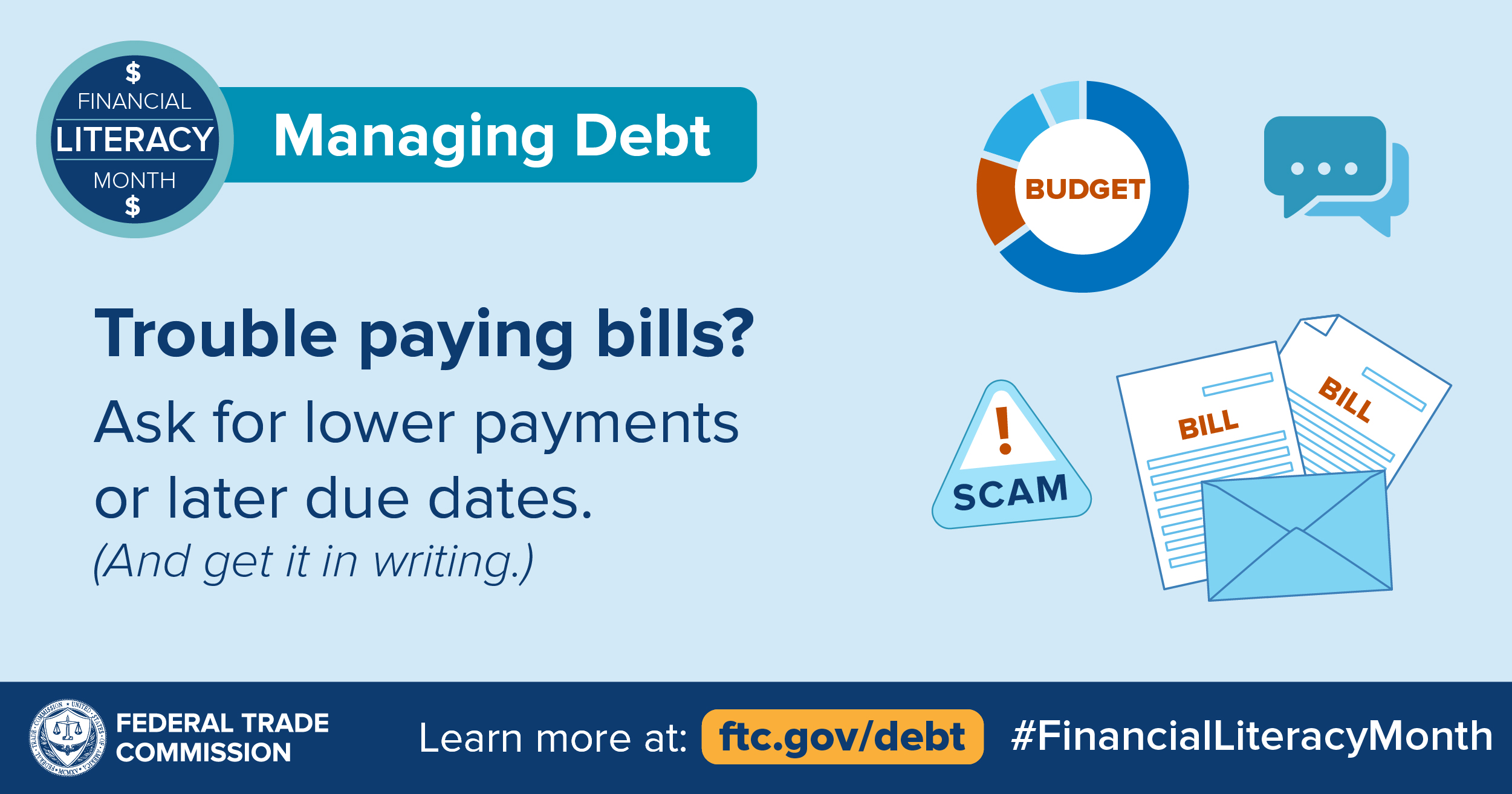COVID-19 has thrown the economy into a tailspin. As people have been laid off, furloughed, or are working fewer hours, bills can pile up. This week, for Financial Literacy Month, we’re looking at ways to manage — and today, it’s all about dealing with debt. Here are some ideas to start regaining your financial footing when you have more month than money.
- Gather your bills: Consider creating a budget so you get a picture of where your money comes from — and goes.
- Ask for help: If you’re behind on payments, contact the companies and try to work out a new payment plan. Ask for lower payments or delayed due dates, and get changes in writing. Also, check for pandemic assistance programs.
-
- Find out if your state or local government has programs that let you hold off on paying some bills right now.
- If you have a government-backed mortgage, you may be able to delay payment. Contact your servicer and read more.
- Look for help with your rent and utilities and housing assistance. Facing eviction? You may be able to stay in your housing if you act now.
- If you have eligible federal student loans, make sure you’re taking advantage of the temporary payment relief available. If you made any payments after March 13, 2020, you may be able to get a refund.
- Watch out for scams: In stressful times, scammers follow the headlines. Any company that guarantees they can get your creditors to forgive your debts, or that makes you pay up front for help, is probably scamming you. If you’re looking for debt relief, look for help you can trust.
If you come across debt relief scams like these, we want to hear about it. Tell the FTC at ReportFraud.ftc.gov.

